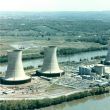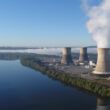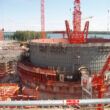For a fuel bank, fairness is paramount
By Khaled Toukan, August 29, 2012
The basic idea behind an international fuel bank is that it would, in a reliable and nondiscriminatory way, make emergency supplies of market-priced low-enriched uranium available to states that sign up to participate. States that opt for membership in a fuel bank would gain increased confidence that their access to reactor-grade fuel would not be interrupted. In return, they would renounce the right to enrich uranium and reprocess spent fuel on their own. Such an arrangement could be appropriate for a number of states. But for others, it might be less than ideal.
Nations might harbor several objections to a fuel bank. First, a fuel bank might guarantee a supply of low-enriched fuel at market prices, but it would not provide protection against price volatility. A fuel bank would be designed to provide fuel only when the need for it arose — that is, when disruptions occurred in nuclear fuel's normal supply chain. But any such disruption would imply higher market prices, so the existence of a fuel bank would not stop the cost of electricity generation from increasing accordingly. (It should be noted, however, that the cost of nuclear fuel accounts for only a small proportion of the total expenses of operating a nuclear power plant.)
Second, some states might be reluctant to sign up for an international fuel bank out of concern that doing so would impose requirements on them beyond those mandated by the Nuclear Non-Proliferation Treaty (NPT). Nations asked to impose a moratorium on establishing new nuclear facilities for enrichment and spent fuel reprocessing might well perceive such restrictions as infringements on their sovereign rights. (It is my understanding that existing facilities would be allowed to run through the end of their lifetimes.) After all, if a state has become a party to the NPT, complied with all the requirements of the treaty, and acquiesced to a Safeguards Agreement that subjects its nuclear facilities and activities to international monitoring, why should it relinquish its right to carry out the various processes associated with the fuel cycle?
Third, signatories to the treaty may feel that some proposed fuel-bank requirements, such as that customer nations forfeit their right to domestic uranium enrichment, interfere with their ability to develop a self-sustaining, economically feasible nuclear energy program. Jordan, my own country, has pursued nuclear power in order to achieve greater energy independence, secure a more reliable source of fuel, utilize indigenous uranium deposits, and avoid the high costs of generating electricity from hydrocarbons. Requiring a state such as Jordan to forego domestic enrichment and to rely instead on international suppliers for enrichment services asks it to forfeit significant opportunities for economic growth.
Denying fuel-bank customers the ability to reprocess spent fuel could have much the same effect — that of infringing on nations' rights, as provided for in the NPT, to pursue comprehensive, peaceful nuclear energy programs. In my view, signatories to the treaty should be encouraged to reprocess spent fuel, albeit under strict verification procedures. This would allow for spent fuel to be stabilized and waste to be reduced; for nuclides to be reclaimed that could be useful for additional power production and in medical and industrial applications; and for research and development activities to be carried out, perhaps leading to enhancements in the safety and performance of nuclear reactors. In any case, restricting such activities to the nuclear weapon states, as well as a select number of non-nuclear weapon states, would seem to create an unfair monopoly in the supply chain for nuclear fuel.
A fuel bank need not withhold from nations pursuing peaceful nuclear energy programs the support that the NPT guarantees them. Unfortunately, the fuel-bank concept as it is currently envisioned appears discriminatory in nature. It fails to recognize the long-term compliance with the treaty that most signatory states have demonstrated and, further, infringes on these states' sovereign right to pursue comprehensive, peaceful nuclear energy programs.
However, it should be possible to formulate the fuel-bank idea in such a way that compliance with the NPT is strengthened and non-nuclear weapon states are rewarded for adhering to the mandates of the treaty. Many of the weaknesses in the fuel-bank concept as it now exists could be eliminated, or significantly ameliorated, if it included a basic principle that underlies both "Atoms for Peace" and Article IV of the treaty: to promote safe, secure, and peaceful nuclear technologies. Therefore, I strongly urge that any fuel bank be designed to allow member states to develop comprehensive nuclear energy programs that are suitable for their domestic needs. Such programs must be carried out transparently, of course, and under the watchful eye of the International Atomic Energy Agency. But signatories to the NPT should not be asked to forego their sovereign rights.
Topics: Nuclear Energy
Share: [addthis tool="addthis_inline_share_toolbox"]














